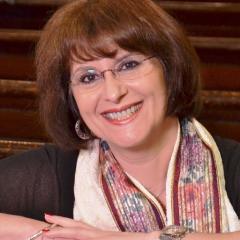
Listening for Change
During a recent browsing of YouTube, which I must admit I do on a regular basis, I came across a rather interesting video. The artists Y-Love and DeScribe made a music video of their song, Change. This video was posted in 2009 and I’m not sure how I missed it; perhaps it wouldn’t have spoken to me then as it did now. In any event, I listened. I listened to two men rap passionately about the need for change – now – this moment.
I’ve been doing a lot of listening lately. I had the good fortune to attend the URJ Biennial this past December where I attended classes, visited with friends, explored the vendors and listened - listened to speakers, music and ideas. One speaker in particular really spoke to me – Rabbi Rick Jacobs. In his Biennial Address, he gave us an update on his vision for the URJ, articulated two years ago. I came away contemplating this idea of Congregational Change. And I found myself asking, “What can we do to help guide our congregations, and thereby our movement, through change?”
As a Cantor, I find myself guiding congregants and their children through life-cycle events and the resultant changes those events bring to their lives. I also bring “new” music to the congregation through which I hope to inspire, challenge and teach. Over time, I have learned to take things slowly and to listen. I listen for clues from students that they are ready to go to the next step, or take on the next responsibility. I listen for comments from congregants and staff that they are ready for something new during services. Yet, even when change is wanted, I have found that I must be careful not to push it too far, too fast. If taken slowly, our congregants will want more instead of running away. Change takes time.
After returning from Biennial, I introduced Debbie Friedman’s Shalom Aleichem to my choir. After a few minutes of singing, one of my choir members stood up and began a passionate speech. “It’s a dirge!” he said. “She took a grand, wonderful song and turned it into a boring dirge. I can’t sing it!” And with that, he left the rehearsal. The next day, he came to see me to discuss why he couldn’t accept a different melody for his beloved Shalom Aleichem. I realized that this prayer (and the melody) had become part of his Jewish identity. I suggested that since he felt so strongly about it, he could simply not sing when we sang the opening song. He agreed and, during subsequent rehearsals, whenever we rehearsed the song, he has steadfastly remained silent. However, at our last rehearsal, without his even being aware of it, I heard him humming the tune to himself as he left.
Change is not easy – but it happens.
In the gospel song Sanctuary, the singer prays to be made a sanctuary – a pure vessel - holy, tried and true. This song has been brought into our Jewish camps and conventions through many artists, often using words of the Psalms to illuminate its meaning. As we go forward into the 21st Century, may each of us become a sanctuary, ready and able to catalyze our congregations into the change necessary for our Movement to grow. Kol han’shamah t’halleil Yah!
Deborrah Cannizzaro is the new Cantor at Congregation Schaarai Zedek in Tampa, Florida. Prior to receiving her Cantorial Certification in 2009, Cantor Cannizzaro was a concert recitalist and opera singer, while serving as Cantorial Soloist for such congregations as Isaac M. Wise Temple in Cincinnati, Ohio; Rodef Shalom in Pittsburgh, Pennsylvania; Temple Beth-El in Northbrook, Illinois; and North Shore Congregation Israel in Glencoe, Illinois. Upon Certification, she became the Cantor at Isaac M. Wise Temple in Cincinnati.
Cantor Cannizzaro’s passion is education, and her goal is to help others find their own personal connection to Judaism. Since her arrival in Tampa in June 2013, Cantor Cannizzaro has become an active member of the Bay Area Cantorial Association and serves as its Treasurer.
Her musical passions, however, are American swing music from the 30s and 40s, and music of the Sephardim.

